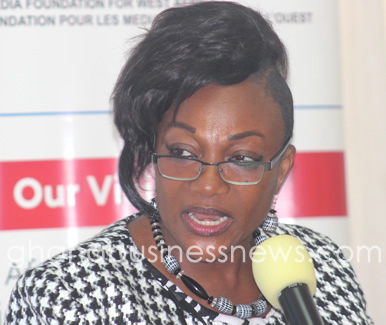Gender Ministry to disburse 49th cycle of LEAP payments

The Ministry of Gender, Children and Social Protection, would from July 31, begin the disbursement of the 49th cycle of payment to beneficiaries of the Livelihood Empowerment Against Poverty (LEAP) Programme.
The LEAP Programme, which was introduced in 2008, seeks to address extreme poverty and reduce the suffering of vulnerable and disadvantaged persons, and this has since become a lifeline to a great number of people, making the difference between empty stomachs and food for the family.
Madam Otiko Afisah Djaba, the Minster of Gender, Children and Social Protection, at a press briefing in Accra on Monday, said during the payment cycle, which would end on August 4, 213,044 beneficiary households in all the 216 districts of the country would be paid their LEAP grants.
She said under the LEAP one-eligible household member would receive GH¢64.00, while a two-member family receives GH¢76.00, with three-member and those with four or more members would receive GH¢88.00 and GH¢106.00.
She said all the beneficiaries of the LEAP Programme would be paid electronically, using the e-zwich platform provided by the Ghana Interbank Payment and Settlement Systems (GhIPSS), through Participating Financial Institutions.
Madam Otiko said because the e-zwich payment platform required biometric fingerprint verification of beneficiaries for payment to be effected, it reduced fiduciary risk and promoted greater efficiency and accountability.
She however said the Ministry had not authorized any individuals or organisations to register people online or anywhere, and therefore warned the public against such activities and getting trapped.
“No LEAP beneficiary should be charged or deducted any amount as serve charge,” she warned.
Madam Otiko said the LEAP was an efficient economic opportunity that stimulated micro-entrepreneurship in the building of social capital for moving extremely poor people out of poverty.
It offered not only the opportunity to improve on food consumption, but also increased enrolment and retention in educational institutions, and had succeeded in the nationwide registration of the more than 90, 000 household members free-of-charge onto the National Health Insurance Scheme.
This, she said ensured that members of the LEAP households received better healthcare and another chance to live healthier and more fulfilled lives.
She said the Programme also created an opportunity for widening the capital base of the local economy by directly putting money in the hands of beneficiaries, which inevitably increase their purchasing power and grow the economy.
Madam Otiko said in accordance with the President’s vision beyond aid and Ghanaians controlling their own destiny, its policy directive was focused on Productive Inclusion, so that LEAP becomes a ‘hand up’, and not a handout.
She explained that the Productive Inclusion system, had been designed to assist LEAP beneficiaries or caregivers with the innate desire to work, saying, the assistance was non-monetary, but rather a transfer of skills that reflected the capacity of the local economy.
She said the training included basket weaving, beads making, processing of sheabutter, tailoring, hair dressing and secretarial services, adding that through the initiative the LEAP programme would effectively become an economic conveyor belt.
She said the Productive Inclusion as a social policy directive, sought to give beneficiaries the opportunity for change and an agenda for jobs.
Source: GNA
